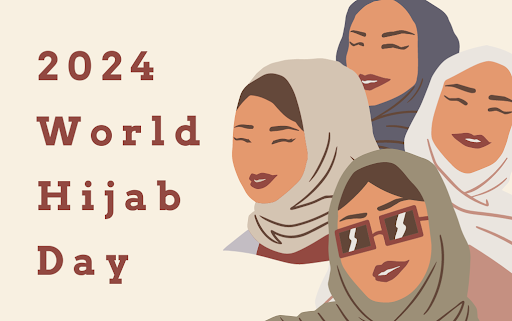In an increasingly plural society, digitally facilitated movements like #WorldHijabDay create a space for discussion about balancing the values of individual freedom and communal, social health.
Last week World Hijab Day invited individuals of all faiths and backgrounds to experience wearing a hijab, fostering empathy and understanding for Muslim women who choose to cover. Social media enables dialogue to proliferate, especially on X (formerly Twitter), organized around a few major hashtags such as #WorldHijabDay, challenging stereotypes and promoting religious tolerance in an increasingly polarized world. Discussions ensued over the tension between cultural relativism and universal human rights, particularly concerning women’s agency and autonomy.
On the other hand, OnlyFans represents a manifestation of Western liberalism’s emphasis on individual freedom and economic empowerment. The platform allows content creators to monetize their explicit content, blurring the lines between amateur pornography and personal expression. While proponents argue that OnlyFans empowers individuals to control their own narratives and finances, critics raise concerns about its contribution to the commodification of sexuality, exploitation, and the normalization of harmful stereotypes.
In the face of these conflicting values, principles from Islamic law, or Share’a, offer an alternative perspective that emphasizes communal welfare, ethical conduct, and spiritual fulfillment. While often misunderstood or misrepresented in Western discourse, Share’a principles provide a holistic framework for addressing social issues, including those exacerbated by the porn industry. For example, Share’a advocates for modesty, respect for human dignity, and the protection of vulnerable individuals, aligning with concerns raised by critics of platforms like OnlyFans.
Share’a principles underscore the importance of social responsibility and accountability, emphasizing the collective responsibility to uphold moral standards and promote social justice. In contrast to the libertarian ethos of Western liberalism, which prioritizes individual rights above all else, Share’a recognizes the interconnectedness of individuals within society and the obligations to promote the common good.
Critics of Western liberalism, including Christian critics, argue that its emphasis on individual freedom has often led to the erosion of traditional values, exacerbating social problems like objectification, commodification, and the normalization of harmful behaviors, so framing Share’a principles in a way that makes American Christians view Islam as a valued partner in maintaining a healthy society, rather than a a cultural competitor, is very practical. Share’a has a comprehensive ethical framework that addresses these issues while prioritizing communal well-being and spiritual fulfillment. However, reconciling Share’a principles with Western liberal values poses challenges, particularly in pluralistic societies where diverse perspectives coexist. Nevertheless, the dialogue between these two paradigms offers an opportunity for mutual understanding and collaboration in addressing shared concerns, such as the negative social trends exemplified by things like OnlyFans.
In conclusion, the observance of World Hijab Day and the proliferation of platforms like OnlyFans underscore the complex interplay between traditionalist values and liberal ideals in contemporary society. While Western liberalism has struggled to effectively address social issues like the porn industry, Share’a principles offer insights into alternative approaches rooted in communal welfare, ethical conduct, and spiritual fulfillment. By engaging in dialogue and mutual respect, individuals and societies can work towards reconciling these seemingly divergent perspectives in pursuit of a more just and compassionate world.
